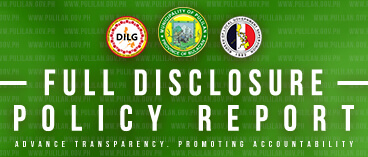The Department of the Interior and Local Government (DILG) has taken initial steps in making the country's most disaster-prone local government units resilient to the harsh effects of climate change by forging a memorandum of understanding with seven provinces, two cities and 19 municipalities for the implementation of a project on disaster risk management and climate change adaptation.
Dubbed as “Mainstreaming Disaster Risk Reduction Management (DRRM)/ Climate Change Adaptation (CCA) to Local Government Systems and Processes,” the project aims to improve knowledge and awareness on the nature and extent of risks faced by the pilot LGUs, and to capacitate them on integrating disaster mitigation and prevention programs into local land use and development plans.
DILG Secretary Jesse Robredo led the MOU signing at the Holiday Inn in Pasig City, with the local chief executives of the provinces of Bohol, Leyte, Laguna, Pampanga, Surigao del Norte, Surigao del Sur and Zambales; the cities of Tandag and Calamba; and the municipalities of Loboc, Abuyog, Bay, Jagna, Dagami, Sta. Cruz, Inabanga, Tanauan, Lubao, Alegria, Botolan, Guagua, Tubod, Hinatuan, San Felipe, Candaba, Mainit, San Miguel and San Marcelino.
“With the increasing impacts of natural disasters and the compounding effects of climate change, we need to take a closer look at local government and developmental processes to ensure that our LGUs are more prepared and pro-active in dealing with them,” said Robredo after the MOA signing.
The DILG Chief explained that, in the realm of disaster risk reduction management, the most important element is readiness, and that migration should take precedence over rehabilitation and reconstruction efforts.
“Climate change proofing” has to commence right now so as not to feel sorry for the loss of lives and property that usually follow tragic disasters,” he said, adding that building the capacity of the LGUs to confront climate change challenges is a legacy whose impact will be felt by future generations.
Robredo likewise expressed his appreciation to the World Bank for providing some $450,000 that will be used in the capacity building and “climate change proofing” of the pilot LGUs.
“We thank the World Bank for supporting us in our earnest effort to help the most vulnerable LGUs in the country, even as we assure you that the output of this endeavor will be replicated in other parts of the country,” the DILG Secretary said.
With the signing of the MOU, pilot LGUs are expected to incorporate DRRM principles in local development planning, to craft appropriate local legislations to reduce risks in local communities, and to capacitate DRRM units to address local disaster concerns.
Under Republic Act 9729 or the Climate Change Act of 2009 and Republic Act 10121 or the Disaster Risk Reduction and Management Act of 2010, the DILG takes the lead in designing a capacity building program for LGUs on CCA and disaster risk reduction, and serves as Vice-Chair for preparedness.
The Philippines has been identified as among the global disaster hotspots, and even ranks eight among countries most exposed to multiple hazards. ###





